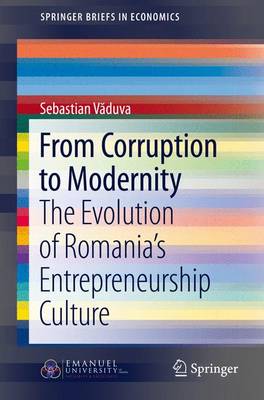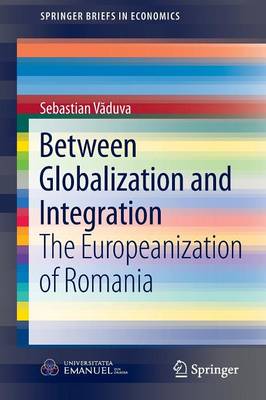SpringerBriefs in Economics
2 total works
This volume examines corruption and provides tools and that can be utilized to combat it and encourage development. Using Romania as a case study, the authors argue that corruption can be reduced via institutional reforms and effective civic education. Describing various causes and types of corruption, the authors explore the causes and influences that result in corruption and the current political and bureaucratic practices that inhibit social, political or economic reform.
The nations of Europe, including Romania, have different civil traditions varying in their intensity, cultural heritage, scope of activity, religious or non-religious affiliation, among other factors. Western Europe has experienced over a century of modern government involvement crowding out the efforts of traditional civil society, while Romania, along with the other Eastern nations of the former Soviet bloc, experienced almost a half-century of systematic efforts by communist regimes to eradicate and control all spheres of voluntary, nongovernmental civil life. Moreover, the inexperience and immaturity of Romanian society in the early transition period after communism, particularly its so-called "entrepreneurial class," have discredited and abused the concept of civil society, utilizing it solely for tax benefits and selfish purposes. Having had to learn the hard way about some of the key aspects of public administration often taken for granted in other countries more experienced in democratic participation, Romania has most recently made significant progress toward overcoming corruption and implementing reforms and policies that will allow it to participate more fully in the global arena.
This volume focuses on the integration and globalization of Romania, a prominent emerging market in South-Eastern Europe and one of the major players in the securitization of the Black Sea and the Eastern European border, as both a part of NATO since 2004 and a fully integrated EU Member State since 2007. It will examine the challenges the country has faced in its progression from totalitarianism to democracy through several waves of reform intended to update and streamline its political and economic processes for success in the free-market capitalist arena. Having learned the hard way about some of the key aspects of public administration, Romania has learned a place for itself among the diverse global players of Europe and beyond.
The first section reviews current perspectives on globalization and its impact in the late 20th century. It has "flattened" the Earth, generating better communication and exchanges than ever before, but also gathering a fair amount of criticisms from commentators seeing it as little else than neo-colonialism. Cooperative-administrative strategies are being suggested instead, in order for new public administration patterns to smoothly run in coordination with the globalized world.
In the second section, the European Union is described as a complex multi-level socio-political entity, itself historically in turmoil over its own style of rule - e.g. hierarchy vs. coordination, integration vs. centralization, etc. - or even its own existence, as the European dream seemed to be losing steam with the general population of Europe several times in the previous century. Powers and responsibilities of the European institutions and agencies are also discussed.
Thirdly, the recent history of Romania is approached from the Europeanization context, starting from its post-1989 days of confusion and of attempting to jumpstart democracy. Eventually, it has to undergo a series of reforms and internalize some principles fundamental to the EU in order for the much-awaited accession to occur and its multiple effects to start taking place.
A country with a rich cultural heritage and straddling multiple socio-political axes, Romania has plenty more to offer in the new geostrategic, security and development contexts of the 21st-century Europe. As such, this volume provides inspiration for further research and practical application opportunities on topics of local, European and global significance.

